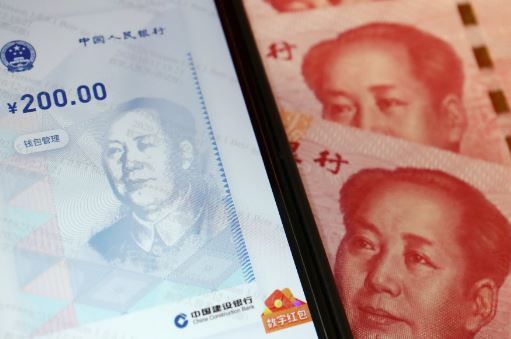
China should focus its efforts on providing yuan debt financing to developing countries, suggested the National Institute of Strategy and Development at Renmin University, a leading research institution in Beijing. The proposal seeks to accelerate de-dollarization globally and reduce dependence on the US dollar in international debt markets, instead of betting on a possible appreciation of the euro. This recommendation comes against a backdrop of intense debates in China’s academic and policy circles, in response to a scenario where the United States is anticipated to adopt a tighter stance on monetary policy, regardless of whether the next president is Donald Trump or Kamala. Harris.
While presenting a research report at a seminar in Beijing, Professor Fan Zhiyong of Renmin University highlighted that China’s main focus on replacing the US dollar should be on the debt market. According to Fan, the yuan could take on a key role in providing liquidity for developing countries, establishing China as a predominant source of financing in a market where the dollar has historically been dominant.
The seminar, titled “US Dollar Hegemony and Global Currency Governance,” served as a stage to discuss the impact of dollar dominance on the global financial system. Fan noted that the internationalization of the yuan, which includes the issuance of debt and liabilities denominated in the Chinese currency, could alleviate the currency incompatibility problems faced by many nations in the Global South. This phenomenon of “currency misalignment” refers to the difficulty of developing countries in meeting their obligations in dollars due to exchange volatility and strong dependence on the dollar in international markets.
Pressure from countries in the Global South to reduce their exposure to the dollar has gained momentum in recent years, especially following several decisions by the US administration to use the currency as a tool of economic and geopolitical pressure. This “weaponization of the dollar,” as Fan described it, has put global financial stability at risk and accelerated a trend of de-dollarization among developing countries, which seek to protect their economies from possible sanctions and abrupt fluctuations in the availability of dollars. The yuan proposal, in this sense, is not only framed as a viable alternative, but as a strategic solution that would allow China to position itself as a key financial partner in an expanding market.
Housing crisis and inequality in Hong Kong
For several years now, China has taken concrete steps to consolidate the yuan’s role in global financial markets. The Chinese currency internationalization initiative includes currency exchange agreements (swaps) with other countries and the creation of trade and investment platforms in yuan. However, yuan debt financing, especially in emerging markets, represents a new area that could strengthen China’s position and contribute to an effective diversification of financing sources for these nations.
Analysts agree that the yuan could be an attractive option for developing countries, due to China’s growing influence in the global economy and its interest in establishing strong economic relations in regions of Africa, Asia and Latin America. These countries, which have historically been subject to the volatility of international financial markets and the monetary policies of the United States, could find in the yuan an alternative to reduce their exposure to the risks associated with the dollar. By having financing in a currency less exposed to US monetary policy, these economies would have greater room for maneuver to plan their finances and manage their debt more autonomously.
For the Chinese government, supporting de-dollarization is not only a matter of economic competition, but also an effort to reduce vulnerability to financial fluctuations and sanctions imposed from Washington. In recent years, tensions between China and the United States have intensified Beijing’s interest in promoting a multipolar financial system where the dollar is not the only reference currency in global exchanges and financing. With the advance of geopolitical tensions and market instability, the diversification of financing sources and reducing dependence on the dollar are becoming more important for many countries.
As more nations explore alternatives to the dollar, China sees an opportunity to consolidate the yuan as a key currency in international financing. However, the path is not easy: although demand for the yuan has grown, the Chinese currency still faces challenges to being widely accepted as a global reserve currency. Market confidence in the yuan depends on factors such as transparency in Chinese monetary policy, the stability of its economy and Beijing’s willingness to implement reforms that strengthen the credibility of its financial system.
Source: https://reporteasia.com/relaciones-diplomaticas/2024/11/04/china-desdolarizacion-global-financiamiento-yuanes-paises-desarrollo/

